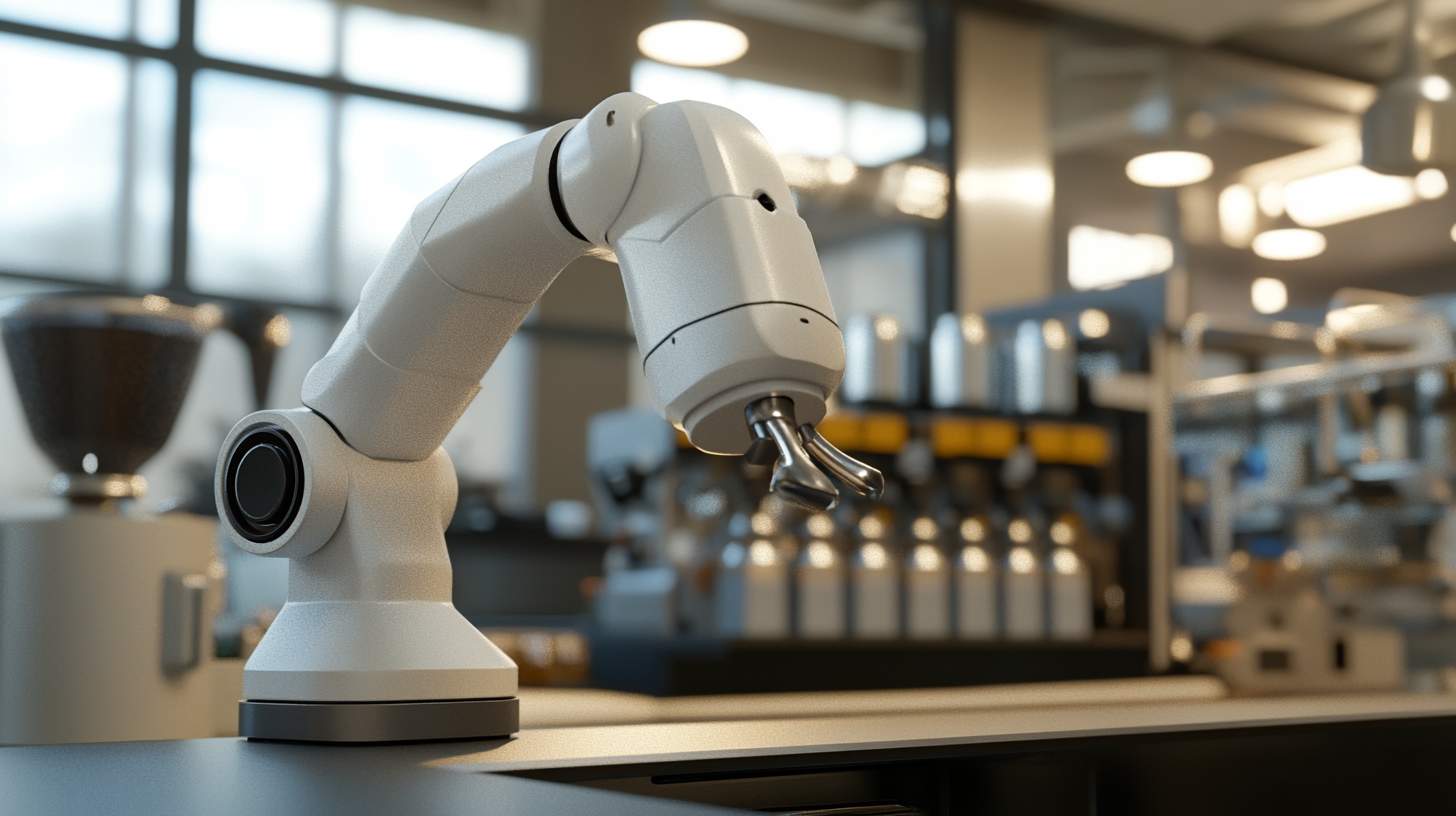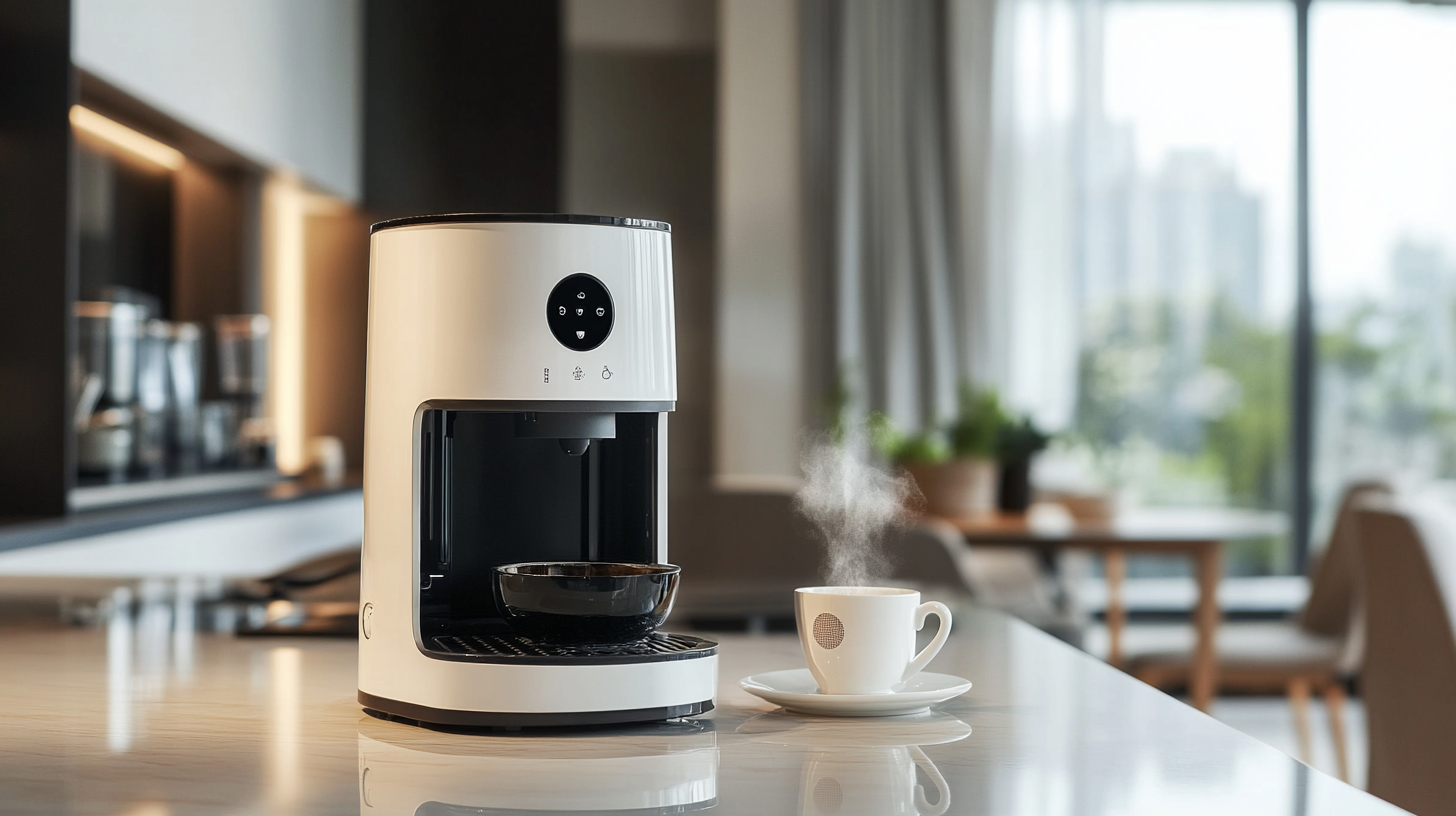How to Identify Top 7 Manufacturers of Robot Coffee Machines for Your Global Procurement Needs
Robot Coffee machines have made a big difference in the coffee industry, which has changed a lot due to automation in recent years. Fortune Business Insights reports that the global coffee machines market is projected to be worth USD 38.86 billion by 2026, with automation and the high acceptance of this technology being the key growth drivers. Insofar that consumers simply want their coffee made as effortlessly and as uniformly as possible, the demand for Robot Coffee machines will peak in order for procurement professionals to identify the key manufacturers in what is now a very new industry.
To properly compete in Robot Coffee machine applications, a good understanding of the top manufacturers is much needed for global procurement strategies. Market research from trustworthy firms like Mordor Intelligence predicts that increased coffee consumption, especially by millennials, is propelling the demand for high-tech coffee solutions. Business partnerships with the right manufacturers are critical for improving customer satisfaction and streamlining operations for competitive advantages. The following blog will discuss seven leading Robot Coffee machine manufacturers, their product insights as well as contributions towards a new coffee culture.

Identifying Key Factors for Selecting Robot Coffee Machine Manufacturers
That is to say, whatever pertains to the global procurement of robot coffee machines, the selection of the correct manufacturer will ensure the quality of not only the product but also reliability. One of the most important factors looks at the manufacturer's experience in the market of robotics. Such manufacturers, ideally, that have been in the industry for an extended time, in addition to the complexities involved with coffee machine technology, also know how to innovate and change along with the evolving market requirements. Industries that have survived the test of time will possibly have enhanced their manufacturing skills keeping in mind less efficient production and better quality of the product. Another key consideration would be the manufacturer's attitude towards sustainability and ethical sourcing. As consumers are becoming increasingly aware of their environments, merchants may benefit from an alliance with manufacturers committed to the use of eco-friendly materials and labor respect. Holding on to these values can be a plus for a manufacturer chasing these interests as increasing importance is being given to corporate responsibility in the marketplace. Also important to be evaluated would be the level of customer support and after-sales services. An enhancing factor in the successful integration of robot coffee machines into your activities is offered by the manufacturers that provide training, communication, and maintenance services. Efficient customer support ensures smooth operations and nurtures long-lasting partnerships, allowing clients to grow and innovate within the changing coffee market.

Top Manufacturers: A Comparative Analysis of Features and Innovations
Diving into the battle of coffee robots, it is paramount to bear in mind the competition. Know what each leading manufacturer has to offer in terms of features and innovations. Comparative studies showcase the merits and unique value propositions of the top seven manufacturers in the market, thus, it's easier for an organization to make a well-informed procurement decision.
There are several features that all manufacturers feature. Some of them give more priority to a user-friendly interface fitted with a sophisticated touch screen and a mobile app connectivity that smoothens the coffee brewing experience for consumers. Some others can put much effort into some advanced functions such as an AI-powered customizing feature-their very own individual experience that provides the most personalized satisfying cup of coffee according to variable taste and preference. These developments add value to functionality and will also redefine the experience of users.
In addition, sustainability has become a focus area at these manufacturers. Nowadays, many are focusing on investing eco-friendly materials and function under energy-efficient operations, which appeal to many consumers. Also, features such as compostable pods and water-saving technologies manifest this. Studying such trends permits the procurement department to match its selection with the market needs and CSR objectives.
In comparing all of these features and innovations, businesses will be able to strategically position themselves in this fast-changing market. It does not matter if the strategy involves innovation or user convenience or even sustainability in developing machines built for total human-replaceability; understanding how each top manufacturer differentiates itself gives organizations the power to select a robot coffee machine fitting to their global procurement needs.

Evaluating Supply Chain Efficiency in Robot Coffee Machine Production
Key factors come into play when assessing the supply chain effectiveness for the robot coffee machine. First of all, the procurement of raw materials influences production lead time and cost. Manufacturers with good relationships with suppliers can guarantee high-quality parts to the manufacturing facilities on time; this means meeting customer needs. Advantageous technologies like IoT and AI can improve inventory management and predict disruptions within the supply chain, hence providing a competitive edge to the manufacturer.
Another important concern is the geographical placement of the manufacturing plants. Companies that strategically direct operations closer to the key markets can gain a great leverage through reduced lead-times and transportation costs. Such a local approach improves the speed of reaction to any change in demand but further allows better communication among teams. Finally, supply chain optimization through a combination of good logistics practices, streamlined transport operations, and partnerships with reputable shipping companies sustains the whole supply chain.
Sustainability considerations, however, are fast becoming critical for robot coffee machine production. Manufacturers that practice green processes lower their carbon footprint and cater to an emerging market segment that urges sustainability. By looking into many factors—material sourcing, location, logistics, and sustainability—companies can figure out the key manufacturers who can meet their global procurement needs while ensuring supply chain efficiency in robot coffee machine production.

Assessing Customer Service and Support Options from Manufacturers
When talking about the types of manufacturers of robot coffee machines, finding such kind of a producer should also be complemented by assessments of the customer service or customer support available to ensure an unproblematic acquisition process. A recent report by a consultancy the world over estimates that improving efficiency and/or quality in customer service is, for most companies, really like a standing goal. New Approaches such as Generative AI, are changing the nature of interactions in customer service, offering increasingly customized and responsive support. As most companies already look forward to such innovations, one further factor is how exactly such techniques have been put to use in customer service by such manufacturers.
Perhaps one hallmark of commitment to customer support is active feedback loops with clients, without which companies possess an uncanny tendency toward systematic approach consultation with their customers to improve their service offerings, resulting in higher satisfaction scores. According to multiple data from companies, there is a positive correlation between service-oriented customer initiatives and retention groups that would be indicative of the business losing, on average, as much as 70 percent of customers because of service deficiencies.
The assessment of service support options should also include the capability of manufacturers in offering timely and reliable troubleshooting. Given that the market for robot coffee-making machines continues to flourish, it is expected that manufacturers will invest significantly in excellent customer service infrastructures - including immediate and after-sales training - so that the user can maximize the value of his products. Ultimately, these elements will be critical for seeding the best manufacturers that can best support your procurement needs.
Understanding Industry Certifications and Standards for Quality Assurance
Understanding industry certifications and standards is an essential requirement for global procurement of coffee machines because they ensure quality assurance. Manufacturers often obtain some certifications that demonstrate their commitment to safety, efficiency, and performance. For example, ISO 9001 certificates give the following advantages: It certifies that the manufacturer has an established quality management system and thus produces a product that is invariably of consistent quality. Such standards do not only help instill reliability in the eyes of customers but also serve to gain their confidence in the supplier's offerings.
Electrical and mechanical safety certification of CE, UL, or RoHS would introduce insights on the safety compliance of the machines. They assure that the coffee machines comply with criteria set up for international safety, hence minimizing the occurrences of accidents in commercial settings. Due diligence on the verification of such certifications by procurement professionals would serve to avert costly mistakes while facilitating smooth integration into various operational environments.
Another important aspect relates to energy efficiency. Manufacturers who possess standards like ENERGY STAR are certifying that they adhere to guidelines for energy efficiency, which corresponds to the objectives stated for global sustainability. Selecting robot coffee machines that meet these energy efficiency standards contributes to environmental sustainability and leads to savings in operational costs in the future. Hence it is pivotal to understand and rank these certifications when considering prospective suppliers to lead to informed procurement decisions.


